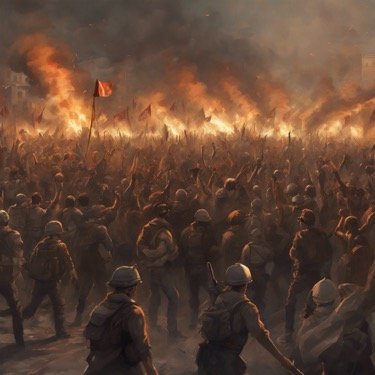
What are some factors that can drive a revolution?
Revolution refers to a significant and often sudden change in political, social, or economic conditions. It involves a complete overhaul of existing systems, structures, or ideologies, and can be driven by various factors such as dissatisfaction with the current state of affairs, desire for freedom or equality, or the need for political or social reform. Revolutions have played a crucial role in shaping the course of history and have led to the establishment of new governments, the enactment of new laws, and the transformation of societies.
Some common factors that can drive a revolution include,
1. Political oppression: When people are denied basic political rights and freedoms, such as freedom of speech, assembly, and participation in the decision-making process, they may feel compelled to rise up against the oppressive regime.
2. Economic inequality: Wide disparities in wealth and income distribution, lack of opportunities, and poverty can create a sense of injustice and fuel revolutionary movements as people demand economic reforms and a more equitable society.
3. Social injustice: Discrimination based on factors such as race, gender, religion, or caste can lead to social unrest and mobilisation for revolutionary change, as marginalised groups seek to challenge and dismantle systemic oppression.
4. Corruption and government incompetence: Widespread corruption, nepotism, and a lack of transparency and accountability in governance can erode public trust and confidence in the government, sparking calls for a revolution to establish a more just and accountable system.
5. Unmet aspirations: When people’s hopes and aspirations for a better future are consistently frustrated due to systemic obstacles or unresponsive governance, they may become disillusioned and motivated to take action for radical change.
6. Spark events: Certain events or incidents, such as a shocking act of violence, a disputed election, or a failure in government response to a crisis, can serve as a catalyst for revolutionary movements by mobilising and uniting people around a common cause.
These factors often intersect and reinforce each other, creating a volatile environment that can ignite a revolution. It is important to recognise that revolutions are complex and multifaceted phenomena, influenced by a combination of historical, social, political, and economic factors specific to each context.







